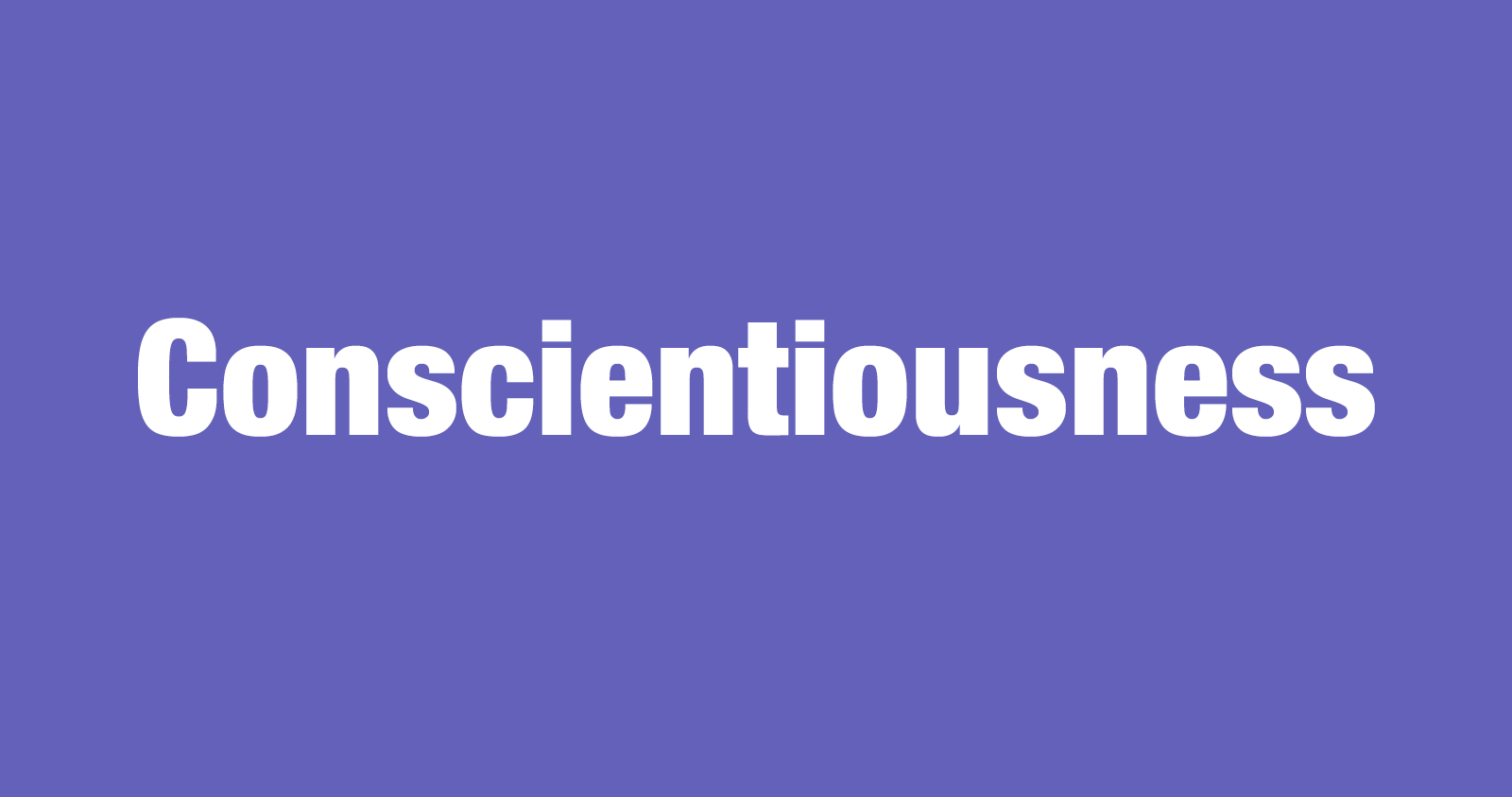What is Conscientiousness?
Conscientiousness is one of the Big Five Personality Traits and reflects levels of diligence and task orientation.

Conscientiousness is one of the Big Five Personality Traits, the personality model Sorter uses to understand your customers.
High Conscientiousness
Highly conscientious people are orderly, reliable, and self-disciplined. They are achievement-oriented and persistent, and they prefer structure. Conscientiousness is a strong predictor of academic and occupational success. However, too high a level of conscientiousness can translate into workaholism.
Conscientious people work productively and are able to delay gratification. Because the conscientious trait translates as a strong predictor of academic and occupational success, it helps people achieve high grades and perform better in a variety of jobs. It’s also linked to job seeking-behavior, attendance, and retention in their careers. Because these people are responsible, they exercise more, eat healthfully, and engage in less drug use—this might lead them to live longer lives.
Furthermore, conscientious people are more likely to be religious and conservative, and less likely to engage in criminal behavior. They might prefer upbeat and conventional music, like country, pop, soundtrack, or religious genres.
Low Conscientiousness
Meanwhile, those low in conscientiousness may be a bit disorganized. However, they have greater spontaneity and can be more adaptable. People with low conscientiousness are more flexible when it comes to decision making, and can easily adjust their behavior to fit new circumstances. This means it’s easier to bounce back from setbacks in the workplace and in life. Having lower conscientiousness means that person won’t become damagingly perfectionistic.
People who aren’t conscientious can be easily distracted, with poor impulse control. They’re less likely to be rigidly focused on social norms and public health recommendations. However, because they’re less committed to norms and expectations, this leaves them more room to be creative and experimental, allowing flexibility for innovation that a high-conscientiousness person wouldn’t have.
Curious about your level of conscientiousness? Take Sorter’s personality quiz.

